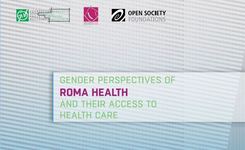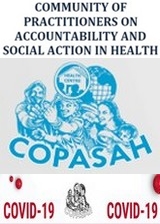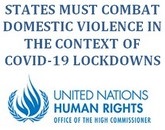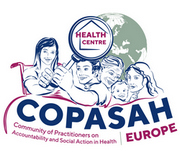
Previous research studies and field work underline the unfavourable socio-economic and living conditions of Roma people, which result in barriers related to their access to health services and contribute to their disadvantaged health status. In addition, having in mind the unfavourable situation of women, especially Roma women in the Macedonian society, it is of utmost importance to researchthe connection between gender and several parameters of health, access to health care and exercise of health rights among Roma respondents.
In particular, this analysis addresses the gender perspectives of health in terms of scope, type and quality of health services received by Roma men and women, with special focus on health services provided by registered general practitioners, emergency medical services, and out-patient and in-patient health care. One section addresses issues related to access to and quality of health services, as well as patients’ rights exercised by Roma men and women. Moreover, this document analyses the effect of respondents’ gender on their self-reported health status and frequency of acute and chronic diseases.
All parameters are analysed by means of comparisons of answers provided by Roma women (393 respondents) and Roma man (298 respondents).
CONCLUSIONS
HEALTH STATUS
Respondents’ gender has a visible effect on their self-reported health status. Higher share of Roma mencompared to Roma women assessed their health as “very good”. Health status of Roma women is moreunfavourable, as they more frequently reported that they have been diagnosed with STDs and suffer from chronic health problems that require regular health care services.
PRIMARY HEALTH CARE
Gender of Roma respondents does not affect their coverage with registered general practitioners orutilization of services in primary health care. More specifially, equal shares of Roma men and women have selected their registered general practitioner and benefied from emergency medical services.
SECONDARY HEALTH CARE
Despite the fact that respondents’ gender does not affect the general level of utilization of services in out-patient health care, it still determines the scope of services provided at certain types of public health facilities, such as general or clinical hospitals and health care centres. Number of visits to these types of public health facilities reported by Roma women is almost twice as high as the numberof visits reported by Roma men. Insignificant effect of Roma respondents’ gender was observed in terms of their satisfaction with the behaviour of specialist medical doctors and the quality of health services received. Therefore, more than half of Roma men and women, in almost identical shares, are completely satisfied with the behaviour demonstrated by specialist medical doctors and the quality of health services received.
TERTIARY HEALTH CARE
Utilization of services in in—patient health care is insignificantly higher among Roma women. Consequently, Roma women are more satisfied with the behaviour of medical doctors and medical staff, as well as the health care services received during their hospital stay.
PATIENTS’ RIGHTS
Gender does not condition Roma respondents’ exercise of their patients’ rights, with the exception of the right to insight in medical records, as more Roma women requested and were granted insight in their medical records.
ACCESS TO MEDICINES
Respondents’ gender does not result in different access to prescribed medicines from the positive list approved by the Health Insurance Fund (HIF). Namely, almost equal shares of Roma women and men were unable to fid the medicines in pharmacies at HIF’s cost.
DISCRIMINATION
Unkind behaviour and poor treatment on the part of specialist medical doctors was reported by both, Roma men and Roma women. Contrary to the situation observed in terms of the treatment on the part of specialist medical doctors, Roma men more frequently reported unkind behaviour and poor treatment during their hospital stay.
Gender perspectives of Roma Health and their access to healthcare






























